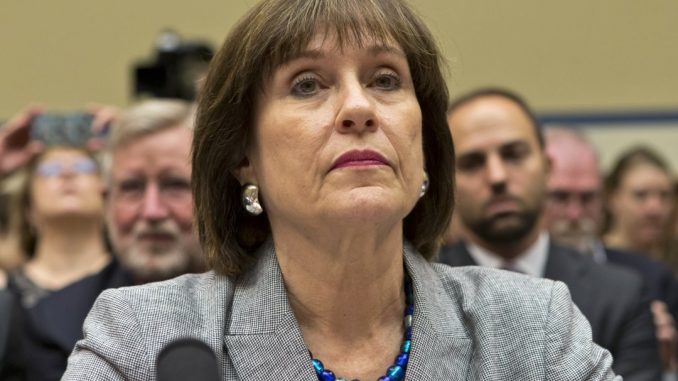
Lois G. Lerner and Holly Paz, two key figures in the IRS‘ tea party-targeting, can keep testimony about their role in the targeting secret, at least for now, a federal judge ruled Thursday. The two women had said they feared death threats and other harassment if their depositions in a class action lawsuit against the IRS became public.
U.S. District Judge Michael R. Barrett had originally ordered their depositions be sealed, but on Thursday he removed that prohibition and instead said the testimony should be deemed “confidential,” keeping it secret until he can see what the women had to say and what effect releasing it to the public would have. He said the parties in the case can eventually ask to make the information public, and at that point the burden will be on Ms. Lerner and Ms. Paz to explain why it should be kept secret.
For now, only the lengthy list of lawyers involved in the case will be allowed to see the deposition testimony.
In a case already fraught with tension, the women’s request for secrecy added a new dimension.
“I’m outraged,” said Mark Meckler, president of Citizens for Self-Governance and co-founder of Tea Party Patriots.
Mr. Meckler’s group is funding a class action lawsuit against the IRS for its targeting, and hundreds of organizations snared in the targeting are part of the case. They want to talk to Ms. Lerner and Ms. Paz as part of their effort to get to the bottom of what went on.
“What she’s claiming is the public should have no right to know, if they’re made at a public official, what that official says under oath,” Mr. Meckler said.
He also said Judge Barrett got Thursday’s ruling wrong. He said the judge should have said his plan is for transparency, leaving open the chance for limited parts to be kept secret if need be.
“I think he got it backwards,” Mr. Meckler said.
More than 400 groups were on the list of nonprofit organizations the IRS said it subjected to intrusive scrutiny up through 2013. It singled groups out because of worries about perceived political activities.
The targeting came to light in May 2013 after Ms. Lerner, knowing a scathing inspector general’s report was coming, staged a question at a conference to get her version of events out to the public first. The Obama Justice Department conducted a criminal investigation but cleared Ms. Lerner and other employees, saying while the IRS showed incompetent management, it did not show an intent to deny applicants their rights. The Justice Department singled Ms. Lerner out for praise, saying she was one of the first to conclude the behavior was inappropriate and took steps to clean up the mess.
Lawyers for Ms. Lerner and Ms. Paz didn’t respond to requests for comment. Neither did the lawyer representing the class of targeted groups.
Judge Barrett had originally scheduled a closed-door hearing for Friday to let lawyers for Ms. Lerner and Ms. Paz argue the need for secrecy.
The Cincinnati Enquirer this week filed a motion to force open the proceedings, saying the press has a right to observe the arguments unless there’s a “clear and present danger, or a serious or imminent threat” to a fair trial.
The paper’s lawyers said Ms. Lerner and Ms. Paz haven’t proved either of those conditions.
On Thursday Judge Barrett canceled the secrecy hearing, saying it was moot now.


Be the first to comment